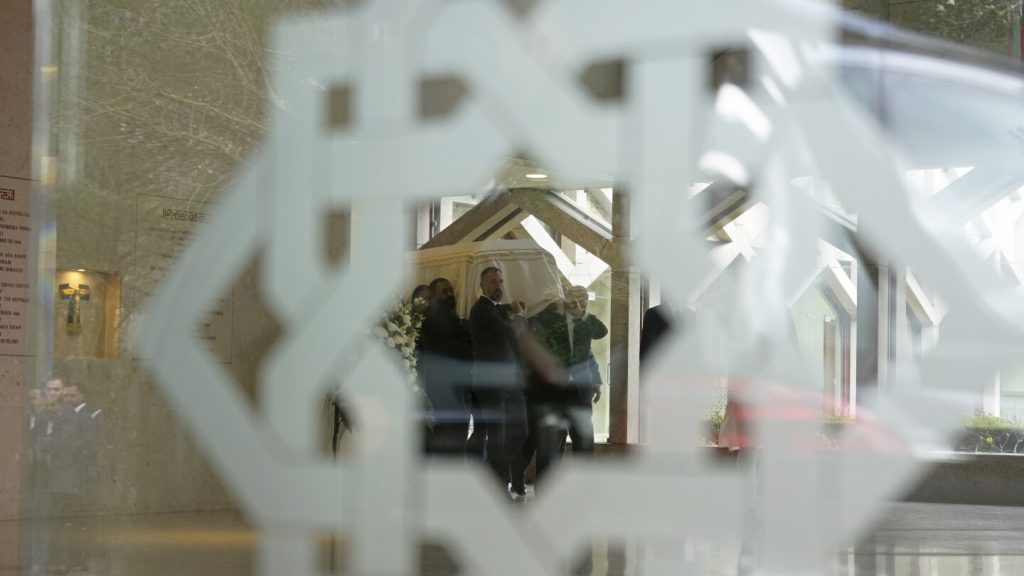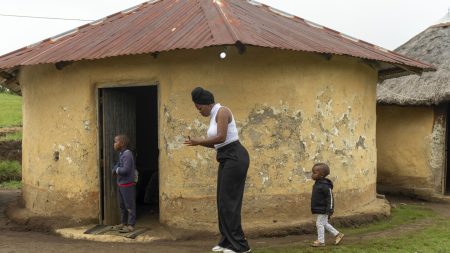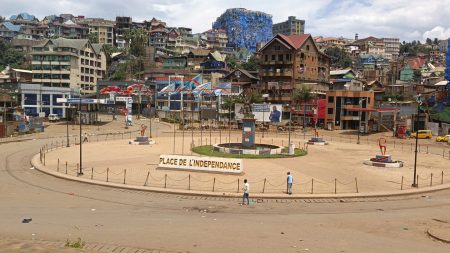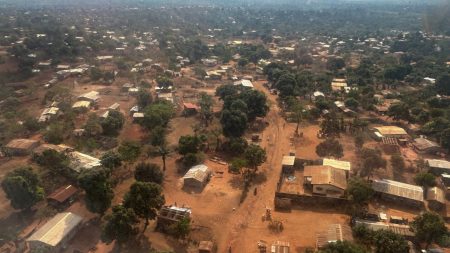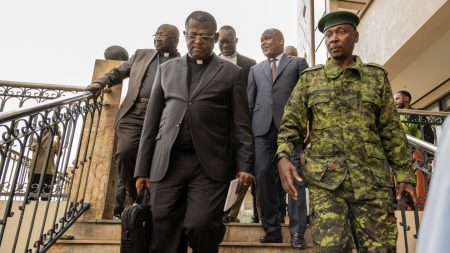The Funeral and Tributes for Aga Khan IV: A Global Leader’s Farewell
The funeral of Aga Khan IV, the revered spiritual leader of the world’s Ismaili Muslims, took place in Lisbon, Portugal, marking the end of an era for millions of followers worldwide. The private ceremony was held at the Ismaili Community Center and was attended by distinguished guests, including Canadian Prime Minister Justin Trudeau, Spain’s King Emeritus Juan Carlos, and Portugal’s President Marcelo Rebelo de Sousa. The presence of these global leaders underscored the Aga Khan’s immense influence not only within his religious community but also on the international stage. The funeral was a somber yet dignified event, reflecting the deep respect and admiration for a man who dedicated his life to bridging cultural and religious divides. Following the ceremony, it was announced that Prince Karim would be laid to rest in a private burial in Aswan, Egypt, a location steeped in historical and spiritual significance for the Ismaili community.
The Succession of Aga Khan V: A New Era Begins
The passing of Aga Khan IV was met with an outpouring of grief from his followers, but it also marked the beginning of a new chapter for the Ismaili Muslim community. Within a day of his death, the Ismaili religious community announced that his 53-year-old son, Rahim Al-Hussaini, had been named Aga Khan V, in accordance with his father’s will. This smooth transition reflects the centuries-old tradition of hereditary leadership within the Ismaili sect, ensuring continuity and stability. Aga Khan V now assumes the spiritual and temporal leadership of a global community that spans over 30 countries, from the mountains of Central Asia to the bustling cities of North America. As the 50th hereditary Imam of the Ismaili Muslims, he carries the weight of a legacy that dates back to the Prophet Muhammad and is tasked with guiding his followers through the complexities of the modern world.
The Legacy of Aga Khan IV: A Bridge Builder and Visionary
Aga Khan IV, born Prince Karim Al-Hussaini, was more than just a spiritual leader; he was a philanthropist, a businessman, and a global statesman. Over his 67-year reign, he transformed the Aga Khan Development Network (AKDN) into a powerhouse of humanitarian work, focusing on healthcare, education, housing, and rural development. His vision of a world where faith and progress go hand in hand was evident in his efforts to preserve Islamic culture while promoting tolerance and understanding. The Aga Khan was also a shrewd businessman, guiding his family’s vast network of enterprises with a keen eye for opportunity and a commitment to ethical practices. His ability to move seamlessly between the spiritual and the worldly earned him the respect of world leaders and ordinary people alike. One of his most enduring legacies is the role he played in fostering dialogue between Muslim societies and the West, a mission he pursued with unwavering dedication.
The Aga Khan Development Network: Empowering Communities Worldwide
The Aga Khan Development Network (AKDN) is a testament to the vision of its founder, Aga Khan IV, and his commitment to improving the quality of life for millions of people around the world. With an annual budget of over $1 billion, the AKDN operates in more than 30 countries, focusing on critical areas such as healthcare, education, and economic development. From building schools in remote villages to providing healthcare services in underserved regions, the AKDN has become a trusted partner in global development. The network’s approach is rooted in the principle of self-reliance, empowering local communities to take charge of their own development and fostering long-term sustainability. The AKDN’s work is not limited to Muslims; it serves people of all faiths and backgrounds, reflecting the Aga Khan’s belief in the importance of pluralism and inclusivity. Over the years, the AKDN has earned numerous accolades for its innovative approaches and commitment to excellence, solidifying the Aga Khan’s reputation as a global humanitarian leader.
The Ismaili Community: A Global Family with a Shared Purpose
The Ismaili Muslim community, led by the Aga Khan, is one of the most diverse and geographically dispersed religious communities in the world. With roots tracing back to the early days of Islam, the Ismailis have a rich history that spans centuries and continents. From their origins in the Middle East to their spread across South Asia, East Africa, and beyond, the Ismailis have always maintained a strong sense of identity and purpose. Today, they are found in over 30 countries, including Europe, North America, and Australia, where they have integrated seamlessly into their adopted societies while remaining deeply connected to their faith and traditions. The Ismailis take great pride in their contributions to their local communities, whether through volunteer work, entrepreneurship, or public service. A key tenet of their faith is the concept of “zakat,” or the obligation to donate up to 12.5% of their income to support the community and the less fortunate, reflecting their commitment to social responsibility and stewardship.
A Life of Service and Legacy: Remembering Aga Khan IV
As the world bids farewell to Aga Khan IV, it is impossible not to reflect on the profound impact he had on the lives of millions. From his early days as a young leader, thrust into the role of Imam at the age of 20, to his later years as a seasoned statesman and philanthropist, he dedicated his life to the service of others. His ability to balance the spiritual and the temporal, the global and the local, was a hallmark of his leadership. Aga Khan IV’s passing leaves a void that cannot be filled, but his legacy lives on through the countless lives he touched and the institutions he built. As the Ismaili community looks to the future under the guidance of Aga Khan V, they do so with a sense of hope and optimism, knowing that the values of compassion, justice, and service that defined their beloved leader’s life will continue to guide them. In the days and weeks to come, many will take comfort in the memories of his wisdom, his warmth, and his unwavering commitment to a better world. As one follower so eloquently put it, “He was not just our Imam; he was a father to us all.” His legacy will be remembered for generations to come.





